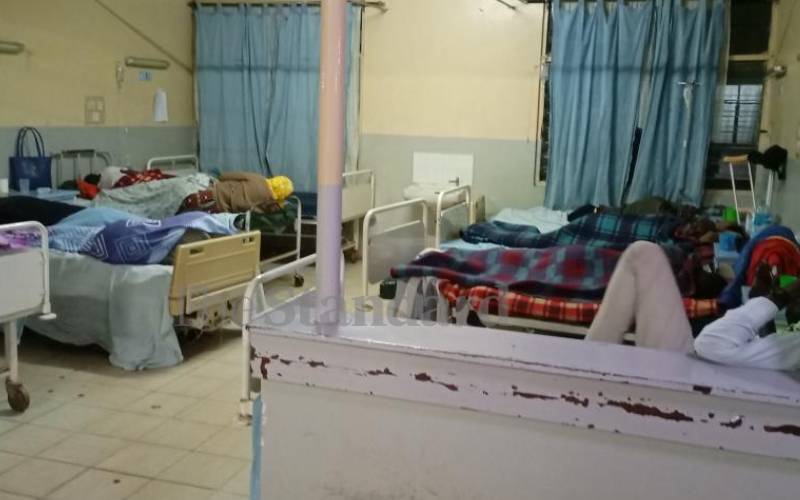×
The Standard e-Paper
Smart Minds Choose Us

The situation at one of the wards at Kapsabet County Referral Hospital. [Mercy Kahenda, Standard]
It is 4.45pm on a Tuesday at Kapsabet County Referral Hospital and multiple patients flock the casualty area, majority in critical state. But at the consultation room, patients crowd due to delays caused by shortage of basic supplies such as syringes, cotton wool and antibiotics. Patients have to buy them from private chemists.